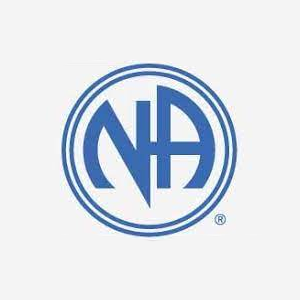Drug & Alcohol Rehab in Northampton

How Does Rehab Work?
Rehab is a process that helps individuals in working towards restoring balance and well-being. Rehab focuses on addressing the patient holistically with individual therapy aimed at resolving addictive behaviours. With guidance from a professional therapist or counsellor, coping strategies are taught and individuals can access much-needed care. Strategies focus on relapse prevention and clients can be assigned to an extended inpatient programme or move to an outpatient programme. With inpatient rehab (residential rehab), individuals will live at the rehab centre for the duration of treatment. Outpatient services are an alternative option in which clients will attend daily/weekly sessions for therapy but will not attend a full-time programme. There are both free and paid outpatient services available within the UK.
What Happens During Residential Rehab?
Rehab is the first step towards recovery and sober living. It can be hard to work on quitting addictive behaviours on your own but with the support of professional intervention, an addiction-free life can be achieved. You may fear the unknown; however, a breakdown of the process can help put your mind at rest.
Prior to entering rehab, every individual will be assessed by a medical professional. The aim is to create a treatment plan suited to individual health and wellness needs. This is particularly important for those with a history of addiction and comorbid mental conditions including depression, anxiety or bipolar disorder.
The next step of a rehab programme is detox. Detoxing from substances requires the removal of the drug or alcohol from the body, typically over a period of time that limits withdrawal symptoms. Detox should ideally be monitored professionally to assist those with withdrawal symptoms. When the substance is removed from your system, the next stage of treatment begins (therapy).
Rehabilitation includes meeting with a therapist for private & group sessions, participation in skill-building activities as with an inpatient or residential rehab, or group meetings that are common with outpatient 12 Step programmes. We explore the different phases of rehab in more detail.
1. Assessment

A complete medical assessment is the first step to receiving the appropriate treatment in rehab. If you are looking into residential rehab, you can expect a telephone assessment by an admissions coordinator. The telephone assessment will provide the treatment facility with the information needed to develop a unique treatment plan. The medical support staff will also have the information to manage patients through the process of detox.
Should you require the assistance of a medical professional to manage addiction, seek a medical assessment prior to treatment commencing. Assessments are an important part of choosing the right therapy and whether inpatient or outpatient programmes are most suitable for your healthcare goals.
2. Detox

Detox is a process in which substances such as drugs and alcohol are safely removed from the body. It is overseen by professionals in a rehab centre.
It is best to have a managed medical detox because the experienced staff is readily available to help you through withdrawal. As the substance is no longer consumed, you may begin to develop withdrawal symptoms. Without professional help, there is a higher risk of relapse. Detox is followed by a fully tailored therapeutic programme. You can attend inpatient or outpatient therapy that is lead by trained addiction therapists and a support team.
3. Therapy

Therapy includes the one-on-one and group sessions you will attend with a qualified therapist, counsellor, and support staff. Treatment is provided in both a residential rehab and an outpatient programme. The direction for therapy will depend upon individual needs.
Step by Step Process for Residential Rehab
To understand your medical and mental health history.
Arrange a suitable date to begin your journey to recovery.
Begin the managed withdrawal process from substances including alcohol.
To understand the root cause of addiction and how to overcome it.
Aftercare is provided to help manage the risk of relapse.
To help heal the wounds that addictive behaviour has caused others.
Find your Nearest Rehab Centre in Northampton
The nearest rehab centre is Charterhouse Clinic.
Address: Charterhouse Clinic, The Avenue, Flore, Northampton NN7 4LZ, United Kingdom
Call 0333 4444 432 to discuss your alcohol or drug rehab requirements and any other questions you may have about the process of residential rehab.
Outpatient Addiction Services in Northampton
To better understand which form of treatment will assist you in your journey to overcoming dependence, it is important to look at the differences between outpatient and residential rehabilitation. Outpatient rehab can be very useful as it offers a flexible and cost-effective alternative to inpatient treatment.
While attending an outpatient programme, you will not have to stay at the facility to receive therapy. It is a more flexible programme for those who need support and therapy but do not want to fully commit to around-the-clock inpatient programme. The purpose of outpatient programmes is to help you benefit from counselling while attending to family, work, and personal commitments.
If you are interested in receiving outpatient care, it is vital to find the right programme that suits your needs. Outpatient services range from paid private counselling to free charitable organisations specialising in substance dependence.
NHS Free Addiction Services in Northampton

Spring House 39 Billing Road Northampton Northamptonshire NN1 5BA
WebsiteThe Benefits of Outpatient Services
Private outpatient plans are tailored to the patient. The purpose is to provide the best standard of care and intervention for recovery from dependence. – Outpatient support is considered flexible because individuals with families and work commitments may continue to manage these areas of life while attending 1 or 2 therapy sessions per week. – It is also less expensive compared to residential treatment services.
The Challenges of Outpatient Services
Outpatient options will always have an important role in rehabilitation but for alcohol and drug addiction, remaining at home with access to substances and the usual social circles may risk relapse. Furthermore, free outpatient services provided by the NHS or UK based charities do not provide the same tailored programme that private outpatient services provide, and there is typically a waiting list before you can be accepted for treatment.

How Much Does Rehab Services Cost in Northampton?
Residential drug and alcohol addiction treatment can typically cost between £1500- £4000 a week. Private addiction treatment within a residential centre may not be accessible for all. However, charity and government organisations deliver free or low cost programmes that individuals with addiction can get help from.
One example of a free addiction service is that of Turning Point. The organisation offers a variety of structured support programmes to address both alcohol and drug addictions. Their website provides a self-referral service. Apart from charities such as Turning Point, you should contemplate private counselling or one of the many free support groups such as Narcotics Anonymous (NA), Cocaine Anonymous (CA), and Alcoholics Anonymous.
Support Groups in Northampton

Step Meeting Group
Anchor House 6-7 Regents Square Sheep Street Northampton Northamptonshire

This Time Will Be Different / Newcomers
4th Floor St. Katharine's House Northampton NN1 2LH UK

Northampton Sober Today
20 Francis St, just off Grafton St NN1 2NZ
The Pros and Cons of Seeking Treatment in Your Local Area
Pros
1. You are familiar with the area which may provide a layer of comfort/safety.
2. Loved ones can easily travel to visit or are close by.
3. You could save on the costs of travelling long distances for treatment, or free addiction services may only be offered in your area of residency.
Cons
1. A local environment means access to drug dealers or other triggers. This is more of an issue if you choose outpatient programmes.
2. Failing to consider locations outside your local area could equate to a missed opportunities for more valuable and rewarding programmes.
3. Addiction treatment programmes that are close by don’t always provide the best standard of treatment.
The CQC website will provide information and ratings on a service in the event you are unsure regarding a particular service.
